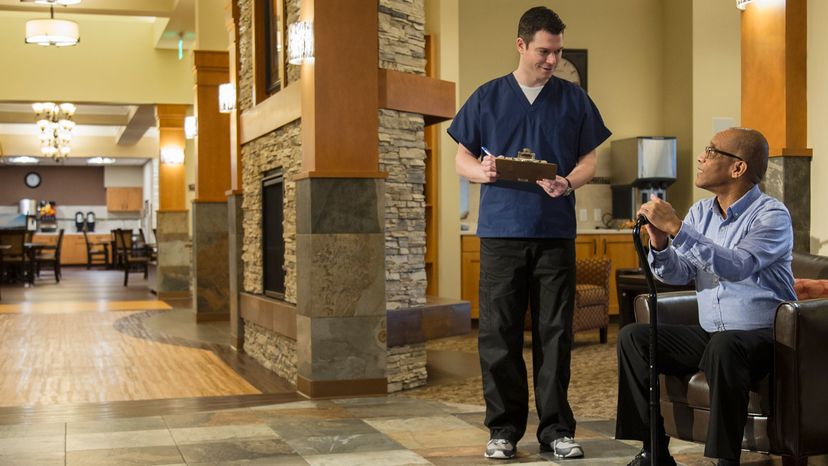
As Americans live longer and longer, around 70 percent of people 65 or older will need some kind of long-term care. While some folks will only need part-time help at home to prepare meals and clean bathrooms, others will spend months or years in assisted living or a nursing facility. The problem is that none of us knows which fate awaits us, so we're left to plan for an old age that could either be perfectly affordable or cripplingly expensive.
If you don't already know, the cost of long-term care in the U.S. is sky-high, and it's going up faster than inflation. The average cost of a private room in a nursing home in 2019 was $102,200 a year, which is 57 percent more than it cost in 2004, according to Genworth Financial. In 2019, a year in an assisted living facility cost $48,612 on average nationwide, but in Washington, D.C., for instance, just a year of assisted living ran $135,456. Staying at home isn't necessarily cheaper, either. Hiring an hourly home health aide (based on 44 hours per week) averaged $52,624 a year in 2019, Genworth reported.
Advertisement
But wait, you might ask, doesn't Medicare and Medicaid pay for some of this? The short answer is no. Medicare will only pay for short stays in a nursing home (100 days maximum) after a surgery or hospital stay, and Medicare doesn't cover any unskilled home health care — help dressing, bathing, eating, using the toilet, etc. — which makes up the majority of long-term care needs. Medicaid, which is for low-income Americans, will only pay for long-term care once you have "paid down" your assets, meaning after all of your money is gone.
When you combine the high cost of long-term care with the uncertainty of growing old, it can be a very stressful, emotional and difficult thing to plan for. Just ask Paula McMillan, a certified financial planner and CPA with Stearns Financial Group.
"The No. 1 retirement worry is running out of money and one of the least controllable areas is our health," says McMillan, who also sits on the Personal Financial Specialist Committee of the American Institute of CPAs.
For people in their 50s and 60s, now is the time to make important and often hard financial decisions about long-term care. Can you simply save as much as possible for retirement and hope there's enough left over to cover nursing homes or home health aides? Or should you fork over thousands of dollars a year for private long-term care insurance for the peace of mind of knowing you'll be covered in your old age, no matter what happens? Can you even afford the premiums? Let's find you more about long-term care insurance.
Advertisement

